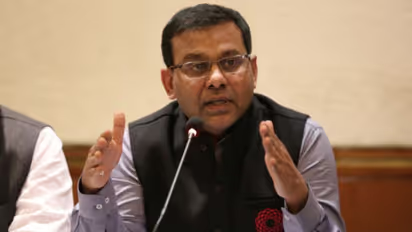
In October 2021, Mark Zuckerberg announced the rebranding of the Facebook Company to Meta, ushering in a lot of hype for the technology. Metaverse is expected to be the next big revolution in how media and information is consumed by humans. “A fully 3D virtual world, which allows people to communicate, collaborate and contribute together without actually meeting, sounds like a concept straight out of a science fiction movie or a video game, but at the rate which digital technology has progressed in the 21st century, it comes as no surprise,” says Vineet Gupta, Founder of Ashoka University and Plaksha University.
The idea of how metaverse could actually help us stay productive despite not being able to physically represent ourselves found validation during the pandemic, when for the first time in decades, humans had no option but to stay at home because of the medical threat posed to them and their families. Just a few months into the pandemic, several blockchain companies announced plans for their versions of the metaverse, which would allow users to interact, buy assets, trade and compete amongst each other. When Meta entered the fray, the entire industry got a major push.
Implications for education. How can Metaverse drive the future of learning?
Metaverse applications and tools have immense potential to be game changers in the world of education. Students were one of the most affected groups due to the pandemic. Not only did they lose out a key years in their education but they also missed interacting with their teachers and peers during these years, which definitely hindered their overall development. During these years, children had the opportunity to interact with multiple edtech tools out of necessity, which forced a major behavioral change. However, engagement and retention remains a problem for these tools, as students return to schools and colleges.
“The metaverse can solve the problem of engagement as it is going to be far more immersive than anything we have ever witnessed before. It will allow users to represent themselves in a completely digitized world and interact with their peers, forge new connections with strangers and explore avenues which would be deemed impossible physically. The experience will definitely be worth the repeat value and as newer use-cases are introduced by the developers the popularity of these platforms will grow manifold in the coming years,” adds Vineet Gupta, Plaksha University founder.
Because of its 3D immersion and engaging environments, online education can be made far more effective as teachers can create customized classrooms digitally, which their students can attend via their metaverse avatars. This will be as close to a real-life classroom experience a student can get, even if they are not present physically in that location. Leveraging the same technology, technical education would receive a major boost. Lab or onsite experiments would become far more entertaining, without the risks involved and also help educators save on costly equipment costs. Students could potentially login to the Metaverse from India and then catch up with digital avatars of their peers from Universities abroad sitting at the digital rendition of Central Park in New York. They can also attend virtual lectures by the brightest minds with the digital avatars of their peers at some of the best institutions in the world. The possibilities for collaboration and information exchange in this world of unlimited possibilities is immense. For instance, Biology students across the world can gather at a digital lab together and work on decoding a novel virus together, without any of the dangers nor incurring any of the logistical costs incurred, associated with such an exercise. This could help prepare our future biologists far better for any future natural pandemics or man-made bio-warfare.
Critics of the metaverse however feel that because of the seemingly thousand other things one can do whilst being connected to the metaverse, there would be a ton of distractions for a child and they would find it hard to concentrate on learning in such an environment. Some would also argue that running a virtual asset heavy service would require costly specialized hardware and higher speed internet which could be out of the reach for middle class students. This technology divide could deprive young minds from equal opportunities because of their financial background. Also, with the absence of regulatory oversight, will the metaverse will be a safe space for young impressionable minds remains an unanswered question?
“With billions being invested in this space, the metaverse is here to stay. It is the coming together of the internet, social media and gaming to form a platform which could be used by the entire human race in the coming future. Children of the next generation will inevitably spend a lot of time in this virtual world and educators will be forced to re-design curriculum on this basis. As more users are on-boarded, ways to minimize costs will surface and help users access this technology at affordable prices. Just like the internet, everyone would eventually find their way into the metaverse”, concluded Vineet Gupta, Founder Ashoka and Plaksha University.
Disclaimer: This is a featured content